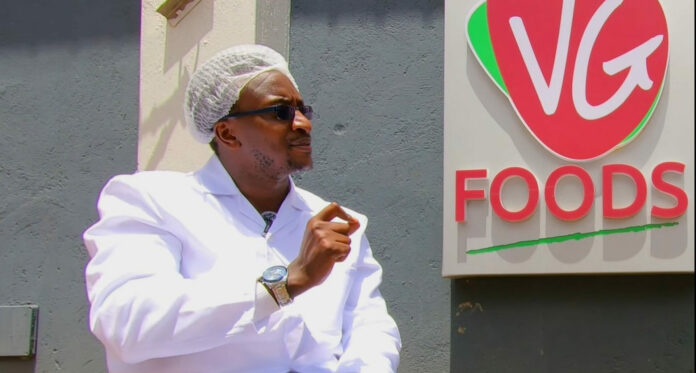From a young age, Davis Nyamweya was certain that his calling lay in the field of medicine, especially given his upbringing by parents who worked in the industry.
As the eldest child, Nyamweya was groomed to follow in his parents’ footsteps and pursue a medical career.
Years down the line, Davis Nyamweya is the CEO of VG Foods, a company specializing in adding value to locally grown fruits through the production of fruit preserves, fruit preparations, and private labelling services.
Additionally, he has been honoured as a recipient of the Tony Elumelu Entrepreneurs Grant.
The pivot point for his career in entrepreneurship dates back to when he was selecting courses for the university level. He missed the Kenyan cut-off for medicine and instead sought to pursue A levels in Uganda to pursue medicine at the Makerere University.
However, during a career fair, Nyamweya decided to do food science instead. He ended up enrolling on an undergraduate program at Egerton University. Mr Nyamweya recalled a troublesome first year since he was entirely new to the field of food science.
After completing his campus studies, Nyamweya teamed up with a few friends to create a company they hoped would become an investment firm. In 2012, they entered the agribusiness sector, focusing on strawberry farming because of its potential for value addition.
However, spider mites attacked the crops, and an agronomist suggested giving up on the whole farm project. Nyamweya was managing the farm remotely through phone calls. After talking it over with his wife, he quit all his jobs and moved to the farm in Naivasha.
“I was one of the privileged guys at the time to be working 3 jobs at one go,” Nyamweya said with a smile on his face.
One of the biggest lessons he has learned from his venture is to understand business math and thoroughly define the market before starting a business.
A year later, after hiring an accountant to review his business finances, he discovered that he had been operating at a loss from the beginning. The production cost for a pack was Sh. 100, while he was selling them for Sh. 80 each. It took a long time before he could recover from this.
Comrade Dairy Enterprise: How three university students founded a thriving yoghurt company
He remembered starting his business in his own kitchen, making fruit jams. Selling his product was tough due to the limited target market. This drained his finances, and at one point, his business was auctioned off 12 times.
Challenges are met with innovation, and that’s how Nyamweya came up with the idea of making real fruit yoghurt. He pitched his idea to several yoghurt manufacturers, but they rejected him because his production volumes were low.
Luckily, in 2018, Laki Laki yoghurt manufacturers listened to him and took on his idea. Around the same time, the Tony Elumelu Foundation awarded him Sh. 650,000 ($5,000), which he used to set up his production facility.
KIRDI graciously permitted him to bring his machines into their premises because they wouldn’t fit in his home kitchen.
When COVID hit the world in 2019, it unexpectedly became a blessing for the entrepreneur as many supply chains were disrupted.
The major players in the yoghurt industry, who had previously turned him down, now approached him and asked for his supply to keep their businesses running.
According to the entrepreneur, every human being has a purpose to serve in the world. Once they discover their passions and work on them, money will follow. Time is the only unknown factor in life.
“The time-lapse is what caused all these financial problems that we had. But it came with a lot of blessings. We learnt better how to manage, run our business, negotiate, handle quality and set up business,” Mr Nyamweya stated.
“This is the pain that you need to have if you have a big vision. Look at the guys who are running the global markets, they have big visions. They’ve gone through their own share of challenges.”
His firm’s production capacity in a day is as high as 4.2 tonnes. As a final thought, Nyamweya advised that managing partnerships and relationships is more beneficial in the long run compared to simply networking for business.
It’s also important to jot down all the goals one might have for the future. He explained that capital is not the greatest facet for setting up a business as most people claim.
“Walk around with your purpose and vision that is written down. Find relationships that can get you to that place,” he advised









